As we reflect on the International Day of Forests 2023 gone by, Swapan Mehra discusses the untapped potential of nature-based solutions in promoting adaptation and building healthy and resilient communities, while simultaneously achieving key climate goals.
CONTEXT
We are living in challenging times and no country can escape the impacts of climate change and variability. These challenges have been exacerbated by declining biodiversity, unsustainable land use and inequitable extraction of natural resources. Large parts of India are particularly vulnerable to climate change, with changing rainfall and temperature patterns expected to significantly affect our agricultural output and ecosystems.
The prevailing climate emergency and environmental scenario call for a shift in focus to enhancing the resilience of ecosystems and communities. To accomplish this, our efforts must be focused on working in tandem with the natural system to decarbonize economies while simultaneously addressing social inclusion.
NATURE-BASED SOLUTIONS
Nature-based Solutions (NbS) is an overarching term that includes several approaches that place nature at the center of solutions for climate resilience and sustainability. They aim to protect, enhance and replenish natural resources that form the basis for achieving food, energy and water security, urban resilience, protecting biodiversity and habitats, restoring land and reducing disaster risk. It is estimated that more than one-third of cost-effective climate mitigation actions required till 2030 can come from NbS (World economic forum, 2021).
Against this backdrop, nature-based solutions are a win-win proposition for people, the economy and the planet and meet the cross-cutting goals of halting biodiversity loss, achieving land degradation neutrality and meeting multiple Sustainable Development Goals (SDGs).
MY INTEREST IN CONSERVATION
Growing up in different parts of India exposed me to the wonders of our diverse landscapes. However, witnessing the loss of biodiversity and degradation of ecosystems over the years propelled me to work towards developing inclusive solutions to tackle this crisis. The Indian Institute of Forest Management (IIFM), Bhopal, was instrumental in giving direction to my determination, playing a pivotal role in helping me build on this idea and providing me with the skills and tools needed to take it forward. Here I learned the value of working through both a top-down approach to drive policy action and a bottom-up approach to implement community-driven solutions that integrate scientific tools and traditional knowledge. I also worked for several carbon finance organizations, using carbon credits (Box 1) as a means of providing funding for climate action.
However, I realized that funding was not the only challenge to finding effective solutions for building resilience. Climate change disproportionally affects marginalized and vulnerable communities who face multiple challenges because of extreme climate events, associated health effects, food and water insecurity, migration and forced displacement, cultural identity loss, and other related risks. It is important they are at the center of all climate action.
|
Box 1: Carbon Credits Carbon Markets refer to the “market” where credits are obtained and sold from one entity to another within defined processes to avoid or reduce greenhouse gas emissions. If farmers are able to commit to and demonstrate that they can keep carbon stock in soil through activities such as agroforestry, low-carbon agriculture, or biogas production, they can potentially sell credits under various standards. Verra-Verified Carbon Standard and Gold Standard are the leading international standards in the voluntary carbon market. Carbon projects where credits are generated and sold must adhere to a rigorous set of criteria to pass verification by third-party agencies and a review by a panel of experts at a standard. After an organization or an individual buys a carbon credit, the credit is permanently retired so it can’t be reused. Carbon credits encourage companies to not only reduce their own footprint but also invest in activities outside of their value chain in the transformation to net zero. |
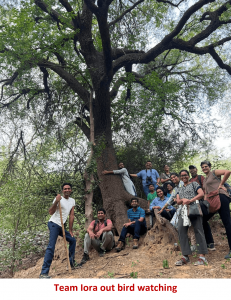 It was this understanding that led me to found Iora Ecological Solutions (Iora), a pioneer in developing and implementing nature-based solutions for climate action. I have been lucky to attract some of the most passionate and committed people, and together we are developing solutions that help mitigate the impacts of climate change and address its social impact by proactively facilitating policy implementation. For more than 10 years, we have provided end-to-end solutions for ecosystem conservation and climate change mitigation, while bridging the gap between businesses and communities.
It was this understanding that led me to found Iora Ecological Solutions (Iora), a pioneer in developing and implementing nature-based solutions for climate action. I have been lucky to attract some of the most passionate and committed people, and together we are developing solutions that help mitigate the impacts of climate change and address its social impact by proactively facilitating policy implementation. For more than 10 years, we have provided end-to-end solutions for ecosystem conservation and climate change mitigation, while bridging the gap between businesses and communities.
At Iora, we believe NbS have the significant potential to help improve the quality of our soils, enhance water availability, conserve biodiversity, enrich our food systems and secure the livelihoods of our communities. While upholding the values of equitable benefit sharing, we collaborate with decision-makers, NGOs and governments to combat challenges faced by the environment. We strongly believe that a community-driven NbS approach can contribute to reaping the maximum benefits for nature and society. As we progress on building robust strategies and technological interventions to foster NbS application, we invite more partners to replicate this approach across the world.
FOREST CONSERVATION AND ENRICHMENT AS A SOLUTION TO CLIMATE CHANGE
Conserving and enriching forests is one of the most critical nature-based solution we can implement. Forests play a crucial role as carbon sinks in mitigating climate change and helping economies build pathways for a resilient future while providing income security, safeguarding rights of forest-dependent communities, and improving soil, air and water quality. Approximately 200 million people in India are forest-dependent, which underlines the symbiotic relationship between local communities and forests.
Policy Action for Decarbonization
India’s Nationally Determined Contributions (NDCs) and Long-Term Low Emission Development Strategy (LT-LEDS) both include key roles for the forestry sector. The country’s NDC goal – sequestration of an additional 2.5-3 billion tons of CO2 equivalent by 2030 – is one of the most ambitious in the world. Iora has had the privilege of supporting the Ministry of Environment, Forests and Climate Change (MoEFCC), Government of India, in developing roadmaps for both the goal and the forestry sector related LT-LEDS.
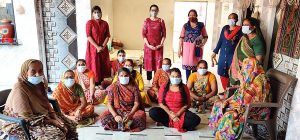 Working together with a women’s group to identify challenges faced due to climate change and land degradation in order to co-develop solutions.
Working together with a women’s group to identify challenges faced due to climate change and land degradation in order to co-develop solutions.
As a part of our general work and process, we engage with several institutions like State Forest Departments, NGOs, forest communities and corporates to design and implement forest conservation and restoration programs and afforestation programs. As a key-in-country partner for the USAID-MoEFCC Forest PLUS Program, we developed and demonstrated the application of Reducing Emissions from Deforestation and Forest Degradation (REDD+), Conservation, Sustainable Management of Forests and Enhancement of Forest Carbon Stocks. This involved developing India’s first four Jurisdictional REDD+ pilots, followed by developing and registering, in partnership with Deutsche Gesellschaft für Internationale Zusammenarbeit (GIZ) GmbH, India, the country’s first and only REDD+ methodology approved by an international carbon standard, Verra–the VM00037.
Technology Use for Sustainability
Under Forest Plus, we also developed ‘m-forest application’, a digital platform that enables forest inventory data collection, and transparent monitoring and reporting of carbon stock assessment. The application further assists its users – field foresters and community members – in easily monitoring and managing forests. While carrying out analysis on the ground across the four project states via., Karnataka, Madhya Pradesh, Himachal Pradesh and Sikkim, we identified various pressures on forests and potential solutions to addressing them. We identified the need to conserve grasslands in the region, and the potential of improved energy access as a means of reducing pressures on the forest. Working closely with the communities, we realized the need for communication and outreach on the value of ecosystem services offered by the forests and promoting best practices for sustainable use to further reduce pressures.
Decision Making Tools to Empower Communities
Our USAID-supported flagship Innovations in Ecosystem Management and Conservation (IEMaC) project demonstrated how technology integration can engage and empower communities. We developed iFoReST (India’s Forest Resource Decision Support Tool) – an innovative decision support system (DSS) that leverages systems design principles and guides investment decision-making with regard to technological, ecological and policy interventions for sustainable fuelwood management, thereby addressing unsustainable extraction from forests. Our sustained efforts and interventions in this program led to a 30% increase in the income of forest communities in the project regions of Madhya Pradesh (IoRA, 2015).
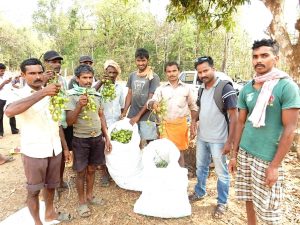 Communities sustainably harvest non-timber forest products (NTFP) after outreach and training activities carried out under IEMaC.
Communities sustainably harvest non-timber forest products (NTFP) after outreach and training activities carried out under IEMaC.
Capacity Strengthening
Strengthening communities and capacity building at the local level is critical to operationalizing climate action. To fill capacity gaps, we need to ensure direct engagement of communities in planning and implementation of environment- related policies. This not only bestows them with a sense of ownership and empowerment, but also helps to reduce the divide between top-down and community-level policy actions. Our capacity building and training programs have successfully strengthened community-led natural resource management. Supporting the implementation of the Japan International Cooperation Agency-supported forestry projects in Odisha and Tripura, we imparted training on carbon stock analysis and carbon enhancement in forests to several hundred forest staff.
TREES OUTSIDE FOREST (ToFs) TO SEQUESTER CARBON AND BUILD RESILIENCE
To realise the bold targets of green cover and carbon sequestration, India has to depend on and promote a steady increase in ToFs. At Iora, we view the enhancement of TOFs as a strategy to achieve our climate goals, enhance land quality and reduce pressure on natural forests, through:
- avenue plantations,
- urban plantations, and
- agroforestry.
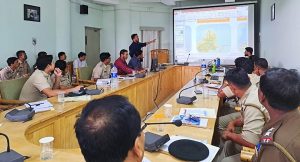 Training forest officials in the use of Remote Sensing techniques for forest monitoring
Training forest officials in the use of Remote Sensing techniques for forest monitoring
Mapping Tree Cover
Working with Michigan State University (MSU) and with support from the National Aeronautics and Space Administration (NASA), we are developing algorithms that can map individual trees on farms or other locations to improve the quality and reduce costs of ToF monitoring.
Investment Platform to Promote Agroforestry
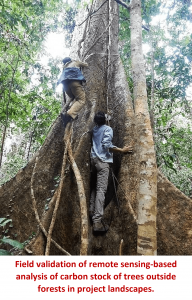 We have created an investment platform that helps farmers obtain funds from carbon credit buyers who have net zero targets to implement agroforestry and soil enhancement projects on their farms. We are developing a 14,000-hectare (ha) agroforestry project across Odisha and Maharashtra, a 10,000-ha tusser silk host plantation on private wastelands in Jharkhand and West Bengal, and a 2,500-ha fruit tree plantation in Maharashtra. These efforts will result in enhancing the incomes of more than 10,000 farmer families and help build their resilience to climate change. It will also result in sequestration of over 10 million tons of CO2 and help restore degraded lands.
We have created an investment platform that helps farmers obtain funds from carbon credit buyers who have net zero targets to implement agroforestry and soil enhancement projects on their farms. We are developing a 14,000-hectare (ha) agroforestry project across Odisha and Maharashtra, a 10,000-ha tusser silk host plantation on private wastelands in Jharkhand and West Bengal, and a 2,500-ha fruit tree plantation in Maharashtra. These efforts will result in enhancing the incomes of more than 10,000 farmer families and help build their resilience to climate change. It will also result in sequestration of over 10 million tons of CO2 and help restore degraded lands.
Forest Restoration and Management
We recently carried out an assessment of land degradation in five states in India- Madhya Pradesh, Maharashtra, Haryana, Karnataka and Nagaland, using the International Union for Conservation of Nature (IUCN) Restoration Opportunities Assessment Methodology (ROAM). This helped us identify 12 million ha (mha) of land (of which about 3.7 mha was forest land and 5 mha was agriculture land) that needs to be prioritized for restoration. These regions need to be restored urgently to ensure food security in the country and achieve our climate goals. We are currently working with State Forest Departments and other line departments to prepare intervention plans centered around nature-based solutions to address these challenges. We are also identifying potential investment and financing sources for these actions.
LEVERAGING AGRICULTURE EXTENSION TO PROMOTE AGROFORESTRY
Over the past 12 years, having implemented more than 150 projects, we realized that the current agriculture extension system needs to evolve to address the needs of tree plantation on farms by:
- creating the case for improvement in varieties,
- promoting high quality planting material,
- training on monitoring tree carbon and
- disseminating good planting techniques.
Research institutes and government departments, along with community-based organizations, need to collaboratively develop localized business models for agroforestry for it to achieve scale and be truly beneficial to both farmers and the environment. These models must promote the use of native species, ensuring the enhancement of biodiversity, and account for not just the direct benefits of the system, but also the magnitude of indirect benefits and ecosystem services offered.
REFERENCES
IoRA. 2015. Short film from IoRA on their pilot project- IEMac (Innovations in ecosystem management and conservation)-USAID (July 2014- July 2018). Published in face book on 31 October 2015. https://www.facebook.com/watch/?v=1192820257399224
World economic forum. 2021. Nature and Net Zero. In collaboration with McKinsey & company. May 2021.
 Swapan Mehra (swapan@ioraecological.com) is an environmental finance and climate policy expert with over 16 years of experience. He is the Founder-CEO of Iora Ecological Solutions, one of India’s leading environmental advisory firms that enables climate action through integrated nature-based solutions. After completing his MBA from IIFM (2006-2006), he pursued a mid-career Masters from Harvard Kennedy School MPA (2022). He is a World Economic Forum’s Young Global Leader (2020), a Donella Meadows Fellow at the Balaton Group, a LEAD India Fellow, and a FICCI Young Business Leader.
Swapan Mehra (swapan@ioraecological.com) is an environmental finance and climate policy expert with over 16 years of experience. He is the Founder-CEO of Iora Ecological Solutions, one of India’s leading environmental advisory firms that enables climate action through integrated nature-based solutions. After completing his MBA from IIFM (2006-2006), he pursued a mid-career Masters from Harvard Kennedy School MPA (2022). He is a World Economic Forum’s Young Global Leader (2020), a Donella Meadows Fellow at the Balaton Group, a LEAD India Fellow, and a FICCI Young Business Leader.
Swapan has contributed to some of India’s pivotal policy documents including National REDD+ Strategy, NDC Goal 5 Roadmap, and “devolution formula” for India’s 14th and 15th Finance Commissions. He led carbon finance and climate investment teams at Evolution Markets and AES India during the early CDM days.

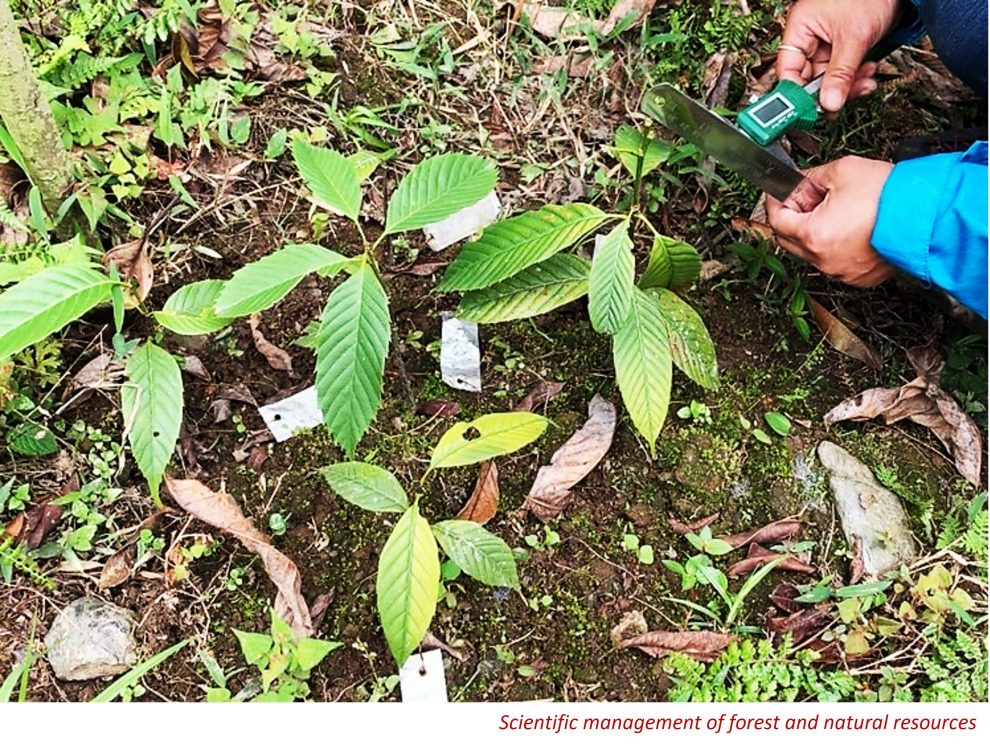
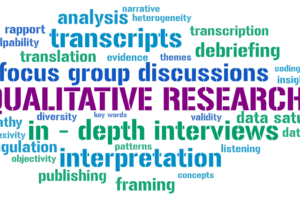
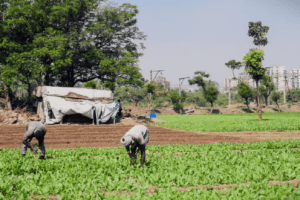

Add Comment